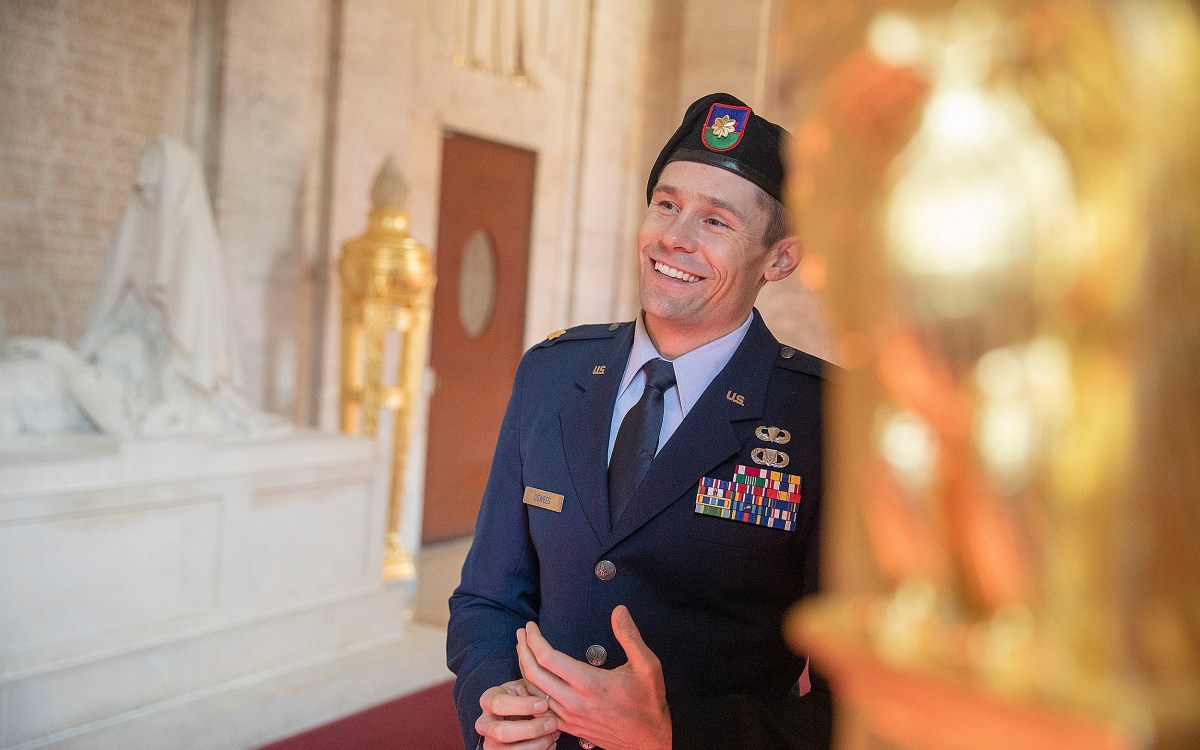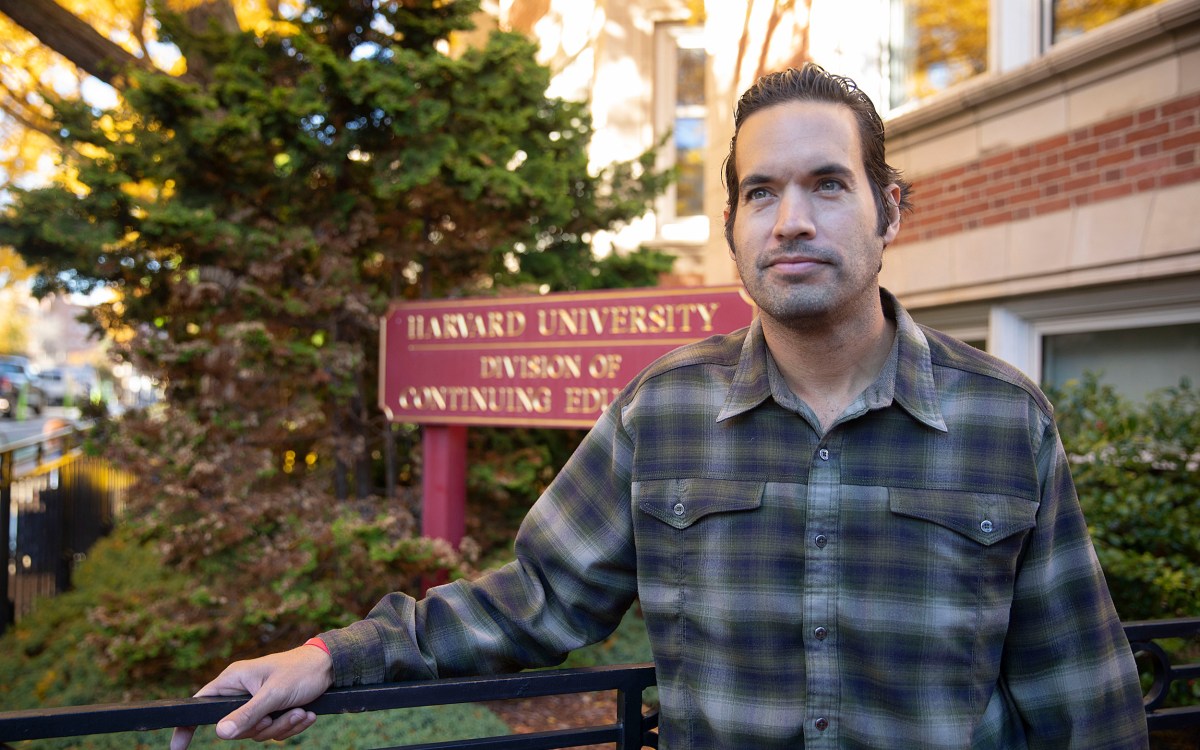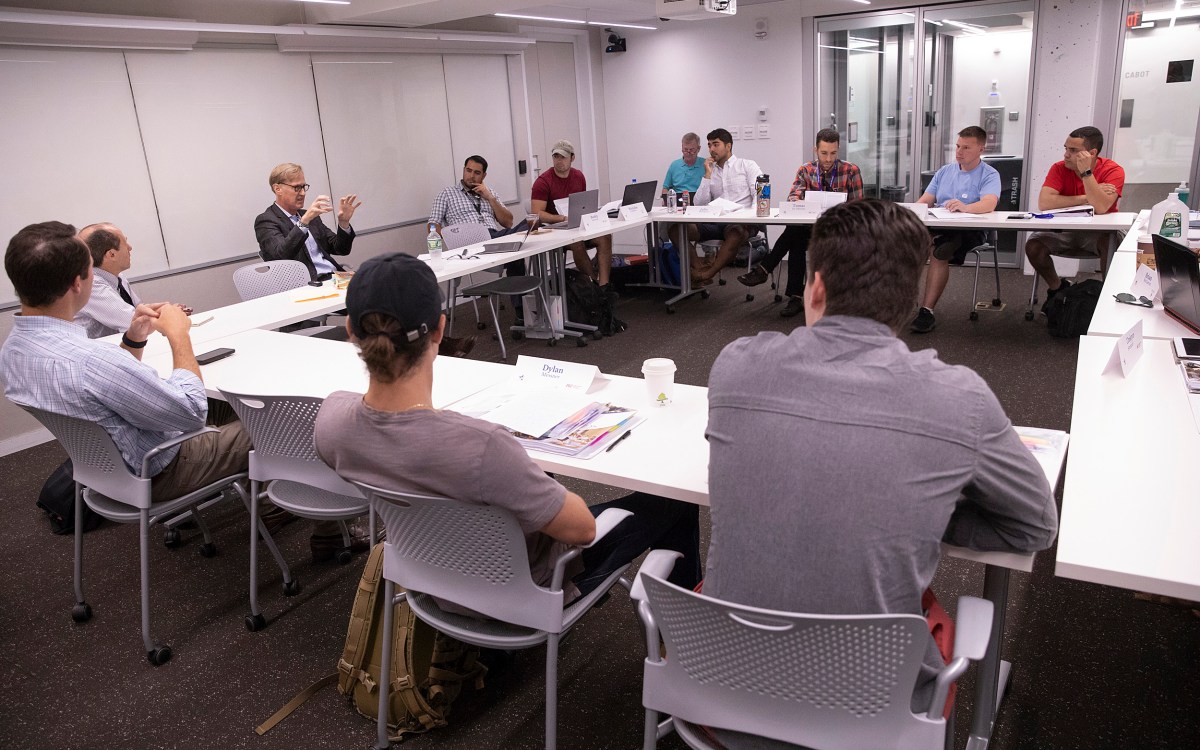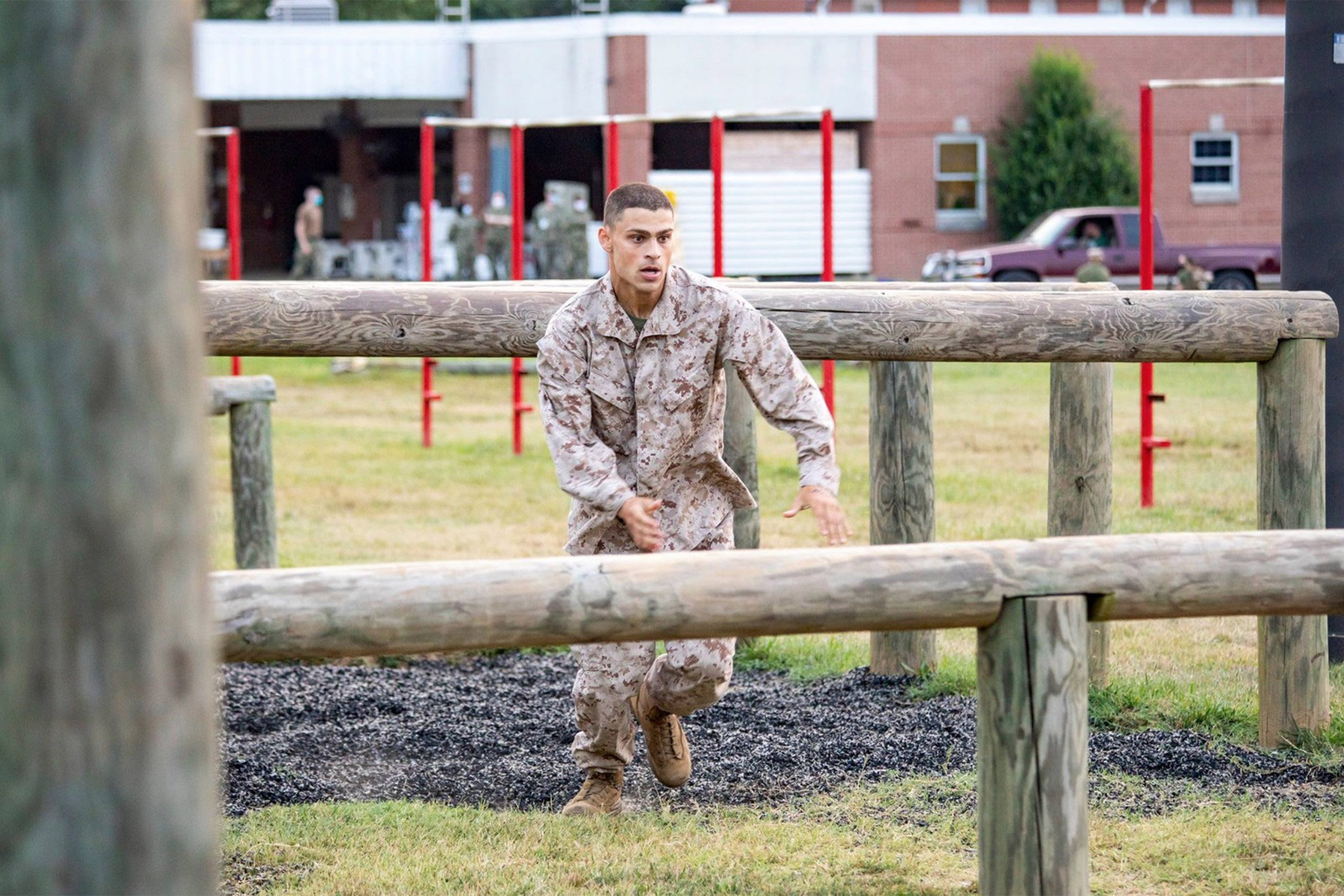
It started with a class paper on the Civil War. “… it got me thinking about what I wanted to do to serve,” said Philip Geanakoplos ’21, who enrolled in Officer Candidate School.
Photo courtesy of Philip Geanakoplos
Growing the ranks
Two detail Marine platoon leader course as campus officers-in-training numbers rise
A small, but highly engaged officer-in-training community has begun to grow in the College, where a new administrator helps support students in ROTC and those who are veterans. Jack Swanson and Philip Geanakoplos found their way to Marine Corps Platoon Leaders Course (PLC), an Officer Candidate School held during the summer that awards commissions to graduates who pursue the military after College. “These are very self-driven, self-motivated students,” said Craig Rodgers, program manager for military student services, a role funded by Todd F. Bourell ’92 and Brooke C. Bailey ’92. The two also endowed ROTC and veterans programming as part of expanded support for military recruitment. The Gazette spoke to Swanson and Geanakoplos about their desire to serve their country.
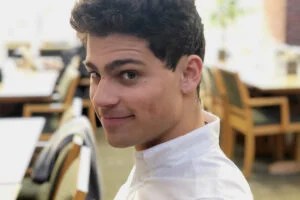
Philip Geanakoplos ’21 comes from “a very not military family.”
“I had never seen a gun that wasn’t in a police officer’s holster,” said the classics concentrator from New Haven, Conn., who decided to apply for the PLC Combined (rather than the two-summer version of the program) after writing a paper sophomore year for John Stauffer’s course on the Civil War.
“My research was on Memorial Hall, which has the names of every Harvard soldier who fought and died for the Union on the wall. It was built to ask every undergrad what they are doing for mankind, and it got me thinking about what I wanted to do to serve,” Geanakoplos said.
He prepared both mentally and physically for the 10-week intensive summer program, studying the history of the Corps and hiking with a heavy backpack.
Philip Geanakoplos leaps for the ball during Harvard men’s soccer practice last year.
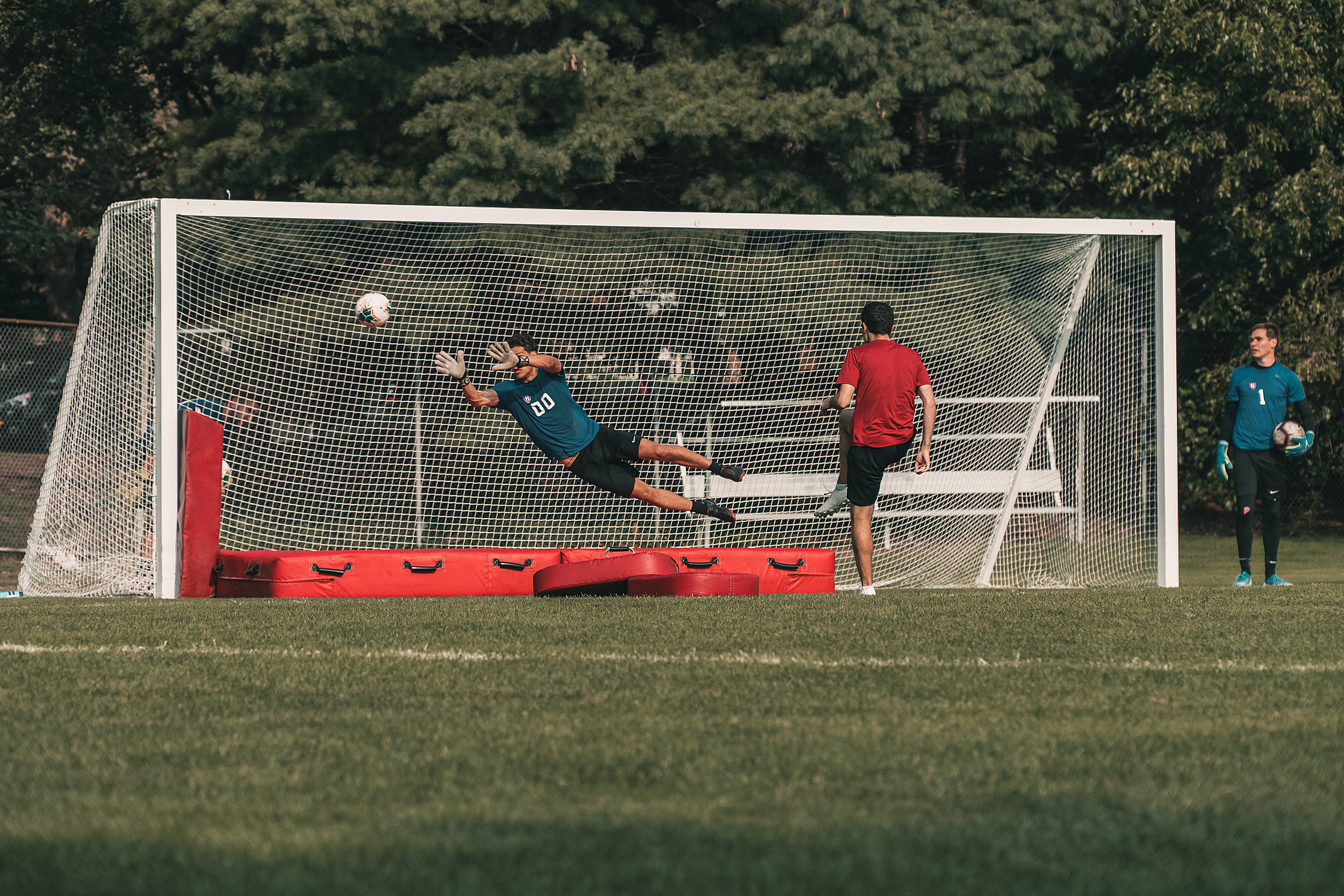
Connor Coyne
“I’m the third-string goalkeeper on the soccer team so I hadn’t done a ton of running, so I’d go on runs by myself and with friends with the pack. Two days before I went I shaved my own hair. That was a mental step for me,” he said.
Still, his platoon started PLC Combined with 85 men and ended with just 75.
“The toughest part was tough. You get yelled at constantly. You have to be upbeat. Complaining is just bad for you and annoys everyone else in the group,” he said. “We had LRC, Leadership Reaction Course. I never successfully completed the tasks, but it’s about being able to keep calm and make the right decisions, even if they don’t solve the problem. The gunnery sergeants would try to fluster you all the time. They’d scream and yell to see if, once you messed up, you could recover or if you would wilt.”
“We had to demonstrate initiative every day. It’s a bedrock driving force,” said Geanakoplos. “I’m driven, but I always felt initiative was a weakness, and something I wanted to work on.”
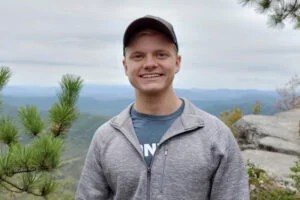
Jack Swanson ’22 grew up in rural North Carolina, where two-thirds of his class went to work, trade school, or the military after high school. He had planned to enlist in the Marine Corps before College, but his early decision acceptance and the accompanying financial aid package gave him the space to think more deeply about military service.
“My freshman year I realized the military was something I still wanted to do. I’m involved in a lot of organizations on campus, and I didn’t want ROTC to crowd my schedule so I started looking at different resources. I reached out to 50 or so people in the Harvard alumni directory and heard back from a dozen, some of whom I still talk to today,” he said.
He applied for the two six-week intensive program held during two sequential summers and said COVID made it both better and worse.
“Everything was canceled anyway, so the Marine Corps was one of the few things to do, but seven weeks is a long time to be in a bubble. Normally by the fourth or fifth week, you get liberties. You can use the phone, or meet in the outside world, but because of COVID, they cut us off from everything,” the government concentrator said.
Jack Swanson taking a land navigation examination in the woods of Quantico, Virginia.
Photo by Marine Corps Officer Candidates School staff photographers
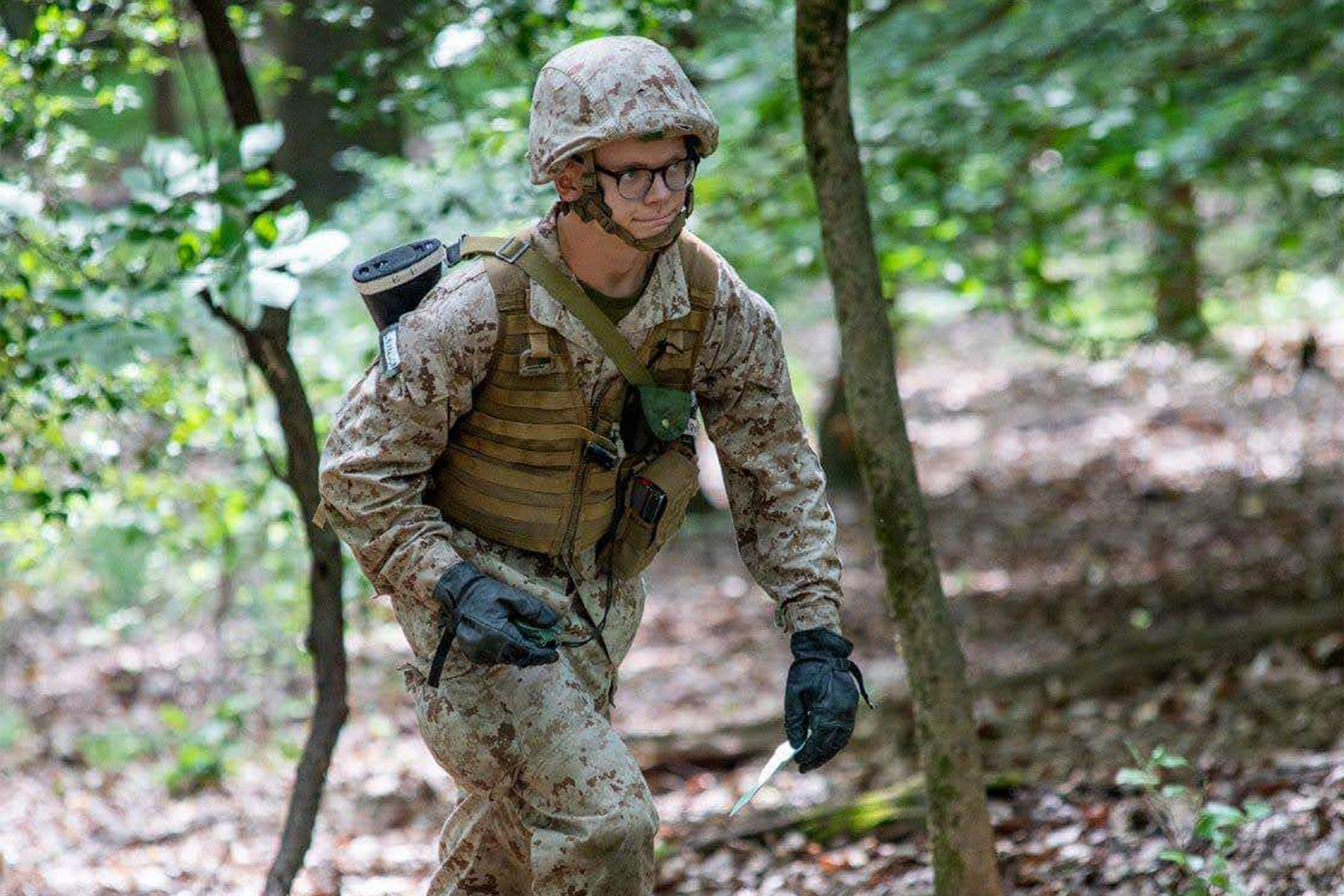
The middle of five children raised by a single mom, Swanson’s do-it-yourself attitude helped him through moments of doubt.
“I knew why I was there. I wanted to prove myself, but you would still get questions from superiors, and no answer was good enough. Or you would wake up at 2 a.m. and go on an all-day hike with a 50-pound bag and not eat all day,” he said. “There was a lot of pride in finishing, but also humility in questioning why you were there and [whether you] have the resolve to finish.”
Swanson thinks more Harvard students “would join if they knew they could do this program and serve and get back out in the civilian world to do what they want to do.”
“The military can be a great leadership opportunity. I’ve gotten a lot of emails from first-years, and I’m always happy to talk to them,” he said. “There is a lot of pressure to get that internship, secure that job after College, chase the next step. Signing that paperwork my sophomore year really gave me a sense of freedom I hadn’t felt before. It opened me up to really focus on what I want to focus on.”


